Network Members
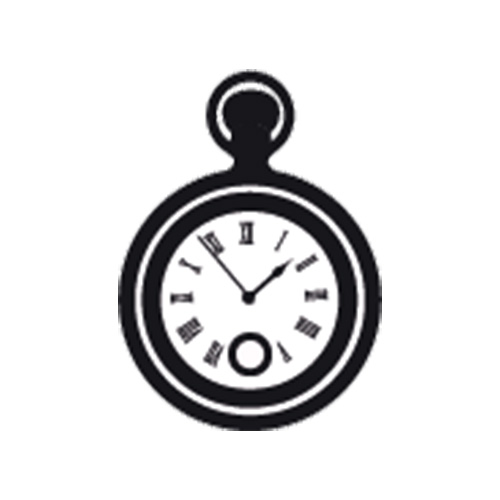
Social Watch
Social Watch is an international network of citizens’ organizations in the struggle to eradicate poverty and the causes of poverty, to end all forms of discrimination and racism, to ensure an equitable distribution of wealth and the realization of human rights. We are committed to peace, social, economic, environment and gender justice, and we emphasize the right of all people not to be poor.
Social Watch holds governments, the UN system and international organizations accountable for the fulfilment of national, regional and international commitments to eradicate poverty.
Social Watch will achieve its objectives through a comprehensive strategy of advocacy, awareness-building, monitoring, organizational development and networking. Social Watch promotes people-centred sustainable development.
- Address: No info provided
- Email: No info provided
- Website: https://socialwatch.org
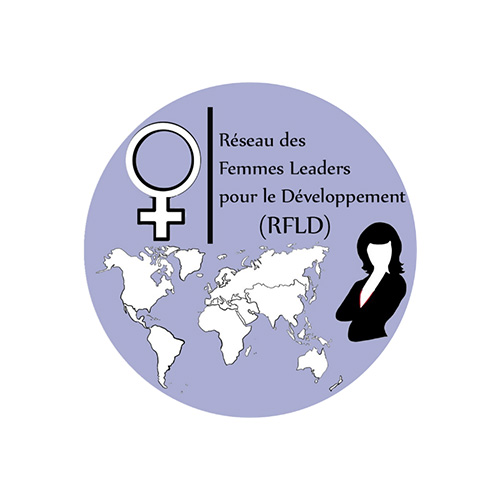
Network of Women Leader for Development (RFLD)
Le Réseau des Femmes Leaders pour le Développement (RFLD) est une organisation régionale à but non lucratif dont la vision est de construire une coopération efficace en partenariat pour le développement grâce à l’implication d’acteurs étatiques et non étatiques pour promouvoir et protéger les droits des jeunes et des femmes et assurer leur participation aux sphères de prise de décision.
La mission principale du RFLD est liée à des approches spécifiques qui sont : le développement inclusif à travers l’application d’approches fondées sur les droits, l’intégration du genre et l’égalité des sexes et l’inclusion sociale – Actions stratégiques et d’impact dans le renforcement des institutions et l’autonomisation des organisations de défense des droits des femmes en intégrant le genre et en promouvant les droits humains et DSSR ; Expertise en élaboration de politiques dans le domaine des droits des jeunes, des femmes et des filles.
Les domaines d’intervention du RFLD sont l’espace civique – la justice économique – la lutte contre les pratiques néfastes – les droits humains – le plaidoyer politique – la paix et la sécurité ; avec pour mission de renforcer les capacités des populations à travers des programmes de recherche, de sensibilisation, de formation et d’éducation, et un plaidoyer efficace utilisant les technologies de la communication. Dans le cadre de ces programmes, RFLD mène diverses activités, notamment de la formation et de la recherche en collaboration avec d’autres parties prenantes sur différentes questions en utilisant la bonne approche.
RFLD est membre de nombreux réseaux et coalitions en Afrique et a organisé diverses recherches, documentation, plaidoyer et renforcement des capacités sur les droits humains pour la promotion et la protection des droits des femmes en Afrique. RFLD a son siège au Bénin avec des points focaux dans des pays de l’Afrique où nous intervenons par projet.
- Address: Gloria Sekonou Dossi AGUEH
- Email: No info provided
- Website: https://rflgd.org/
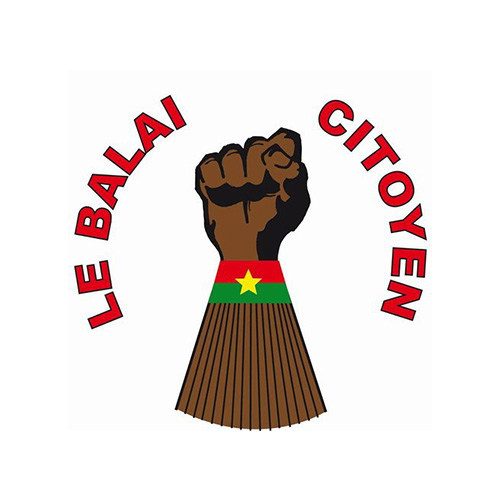
Le Balai Citoyen
Le « Balai Citoyen » a une coordination nationale, organe exécutif, de 13 membres élus par une Assemblée générale pour un mandat de 1 an. Sur le même modèle, des coordinations régionales ont été mises en place.
Le secrétariat permanent de la coordination nationale est basé à Ouagadougou. La cellule de base du mouvement est constituée de clubs Cibal encadrés par des points focaux. En dehors du territoire burkinabè ce sont des ambassades Cibals qui représentent le mouvement.
Les membres du mouvement sont désignés par le terme Cibals s’ils sont de sexe masculin et Cibelles pour les personnes de sexe féminin.
Peut devenir membre du « Balai Citoyen » toute organisation de la société civile ou personne physique qui souscrit aux obligations de la Charte.
- Address: No info provided
- Email: No info provided
- Website: https://lebalaicitoyen.fr/
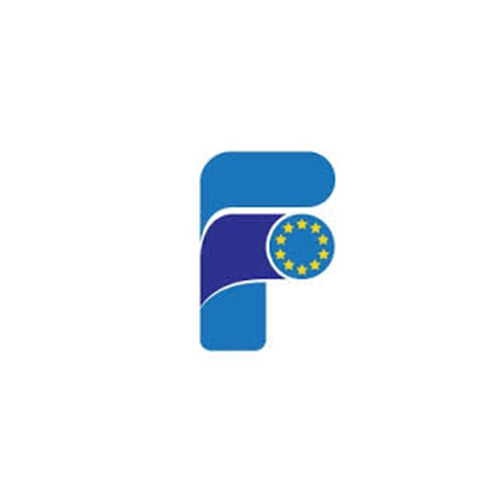
Forum Cabo-Verdiano da Sociedade Civil
FORUM CV is a non-governmental, independent, non-profit, without any political orientation, endowed with legal personality and with full administrative, financial and patrimonial autonomy, whose objective is to contribute to the reinforcement and improvement of the level of intervention of the various civil society entities, through concerted actions and the promotion of their participation in the socio-economic development of the country.
This is an innovative civil society initiative organized around an alternative entity to the NGO Platform (currently known as the CSO Platform), which was established in March 2021, in an assembly that included the participation of various entities representing civil society , including natural persons and legal persons, representatives of community associations, NGOs, foundations, networks of associations, companies, Universities and academic institutions.
FORUM CV’s ethical principles are formed by the values that guide the organization in the exercise of its activities. In particular, the following values stand out: Integrity; Ethics, Respect; Transparency; Responsibility; Solidarity; Collaboration and Partnership.
- Vision – A national community of organized, informed and determined citizens who contribute to the prosperity and well-being of humanity.
- Mission – Strengthen citizen action and civil society in Cape Verde and in the world, through the promotion of good governance practices, respect for human rights and the promotion of participatory and inclusive democracy.
- Address: No info provided
- Email: No info provided
- Website: https://m.facebook.com/forum.cv

Instituto Pedro Pires
The IPP was conceived as a proactive and innovative platform to think and act on the limitations, constraints and challenges that stand out in the implementation and exercise of truly democratic, accountable and shared governance, essentially in Cape Verde and Africa. The IPP is based on the following values, which guide the exercise of its mandate:
- Excellence – rigor and pursuit of excellence, always seeking to maintain a high level of achievement;
- Inclusion and Pluralism – promotion of and respect for the diversity of ideas and opinions;
- Innovation – both in approach and in thinking;
- Sharing – of knowledge, ideas, thoughts and perspectives;
- Citizenship – with a view to greater and broader participation of civil society in the formation of opinion and public policies.
- Address: No info provided
- Email: No info provided
- Website: http://www.institutopedropires.org/
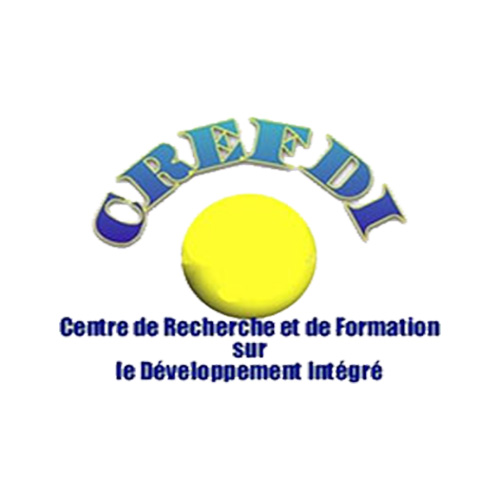
Centre de Recherche et de Formation sur le Développement Intégré (CREFDI)
Le Centre de Recherche et de Formation sur le Développement Intégré – en abrégé CREFDI – a vu le jour par la volonté d’un ensemble de personnalités universitaires, de décideurs et surtout de membres de la société civile, désireux d’apporter leur contribution à l’édification d’une société civile engagée et responsable en matière de questions budgétaires et de développement intégré.
Nous sommes aujourd’hui dans un contexte international et national d’appel et de sensibilisation à la Bonne gouvernance. Pour les pays en développement et les pays dits les moins avancés, cette expression s’est muée en quelques années pour désigner le passage obligé pour la lutte contre la pauvreté. Ainsi, la création du Centre s’inscrit également dans le cadre du développement de la couverture régionale par des activités de sensibilisation et de veille à la bonne gouvernance. Son outil de base est l’analyse des budgets publics ainsi que des politiques de développement et de lutte contre la pauvreté.
Le CREFDI est une Organisation de la Société Civile Ivoirienne ayant pour ambition de promouvoir la Bonne Gouvernance et le Développement Intégré en Côte d’Ivoire ; le développement intégré s’entendant sur les plans économique, financier, politique, local, environnemental, etc.
Le CREFDI est répertorié comme Think Tank dans le classement 2018 de l’Université de Pennsylvanie.
- Address: No info provided
- Email: No info provided
- Website: http://crefdi.org/
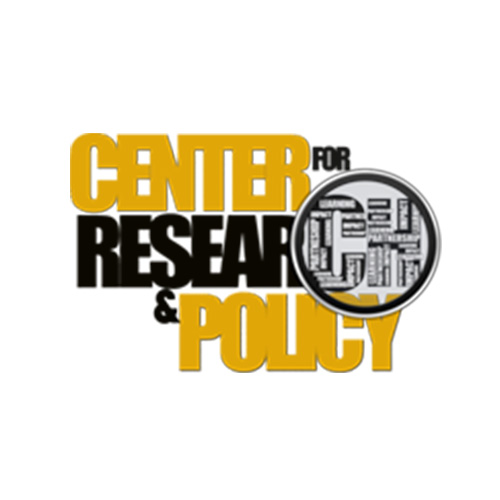
Center for Research and Policy Development (CRPD)
The Center for Research and Policy Development (CRPD) is a legally registered, independent, non-profit, social research, advocacy, learning, and capacity-building organization committed to promoting inclusive democratic governance in The Gambia.
CRPD is dedicated to the promotion of freedom, rights of expression and association, advancement of popular participation, the strengthening of advocacy and civic engagement and the conduct of policy research that impacts positively on the democratic project in the Gambia and advances national development
CRPD was launched in 2018 to address the data gap within the country and to contribute to the national transitional justice agenda by delivering quality research and data using cutting-edge research methods that combine both qualitative and quantitative approaches to address critical socioeconomic, developmental, political, and governance-related issues.
- Address: No info provided
- Email: No info provided
- Website: https://crpgm.org/
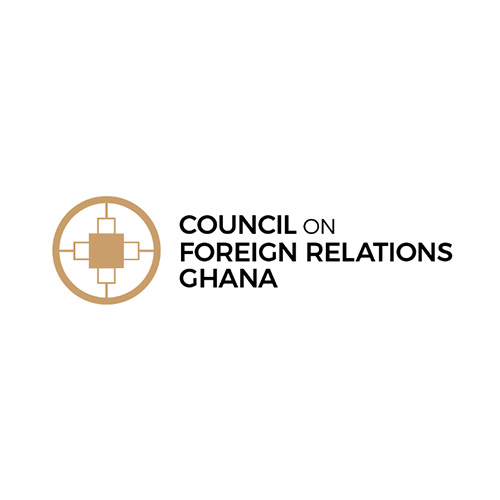
Council on Foreign Relations Ghana
Ghana, since March 6, 1957 when it became the first country south of the Sahara to gain independence from colonial rule has been at the forefront of international affairs.
Consequently, the country has produced hundreds of distinguished diplomats, international public servants, legal luminaries, finance experts and other professionals who have impacted global relations and politics.
Ghana, as one of the first participants in the United Nations Peacekeeping Operations in the Congo and subsequent role in conflict resolution and peacekeeping in Africa, has also produced many experts in the field.
The raison d’etre for the establishment of the Council On Foreign Relations-Ghana is to mobilize the rich and profound pool of Ghanaian experts in international relations, foreign policy and diplomacy.
The objectives of the Council are to contribute to the formulation and implementation of foreign policy and international relations of the Governments of Ghana, ECOWAS and African States through research-based policy dialogues and advocacy, the provision of expert advisory services, and facilitated engagements between the State and citizens.
- Address: No info provided
- Email: No info provided
- Website:
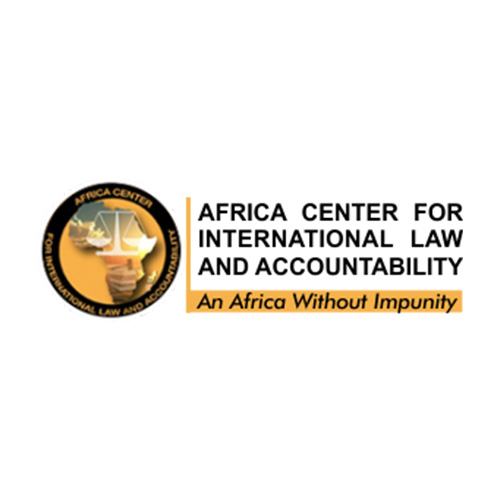
Africa Center for International Law and Accountability
The Africa Center for International Law and Accountability (ACILA) was incorporated under US law, in the state of Virginia, on 20th October, 2015, and received its designation as a 501 (c)(3) research and education, non-partisan, non-profit, and non-governmental organization from the Internal Revenue Service of the United States of America.
On 23rd December, 2015, ACILA was incorporated under Ghanaian law as a company limited by guarantee and granted NGO status.
The objectives of ACILA are to:
- Contribute to African scholarship through enhanced understanding of international law.
- Conduct research on bilateral, regional, continental and international law instruments that Ghana and African states have signed or ratified in order to enable Ghana and African states meet their obligations.
- Educate the public about the bilateral, regional, continental and international law instruments that Ghana and African states have signed or ratified and their rights and obligations under them.
- Press for reform of bilateral, regional, continental, and international law instruments.
- Empower citizens to demand accountability and responsiveness on issues pertaining to human rights, anti-corruption, good governance, rule of law, and international justice.
- Monitor African states compliance with bilateral, regional, continental, and international instruments.
- Design, develop, and administer training programs on bilateral, regional, continental and international law instruments.
- Collaborate with domestic, regional, continental, and international bodies to foster the attainment of the stated objectives of ACILA.
- Address: No info provided
- Email: No info provided
- Website: https://www.acila.org/
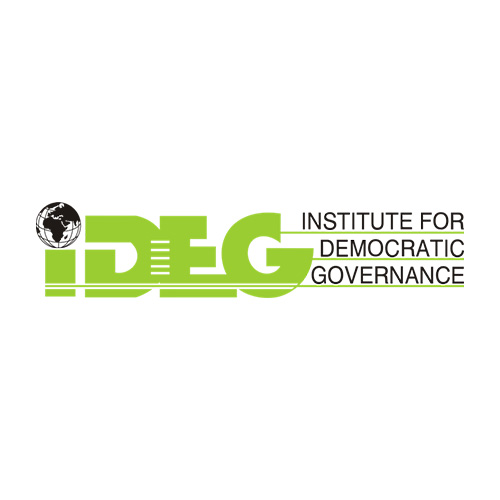
Institute for Democratic Governance (IDEG)
The Institute for Democratic Governance (IDEG) was established in Ghana in 2000 as an independent, not-for-profit policy research and advocacy organization with the following as its vision, mission, objectives and tools of operation.
Motivation
The Institute for Democratic Governance (IDEG) was established in the year 2000 purposely to contribute to the “establishment of a just and free society” in Ghana that is democratic, prosperous, integrated and secure in the West African sub-region and beyond. Established at a time of growing public interest in the advancement of democratisation and good governance in the hitherto authoritarian, turbulent, and underdeveloped polities of the West African sub-region, the founders of IDEG committed themselves to work for the consolidation of democratic governance within and beyond the boundaries of Ghana. Consequently, IDEG was conceptualised to function as the leading centre of excellence, delivering cutting edge services relevant to the empowerment of citizens and enhancement of their ability to sustain democratic governance and equitable development.
To the founders of IDEG, the impact of democratic governance on the transformation of the hitherto authoritarian and underdeveloped post-colonial African states, economies, and societies was clear. After several decades of repressive rule and state decline precipitated economic and social crises resulting in the underdevelopment of the continent, opportunities for the revitalisation of the economy and society into a more prosperous, secure, equitable and peaceful life world had expanded. The emergent concept was that the promise of the new era could flourish best within the over-aching frame of a stable, modern, inclusive and resilient democracy. This was defined as one of the major challenges to peaceful and accelerated development of Africa in the 21st century.
In response to this challenge, IDEG seeks through first-class scientific research and analysis, policy dialogue and advocacy, and capacity building to expand the scientific knowledge base, enhance change management skills, and foster innovative partnerships that would enable state and non-state actors to successfully pursue economic, political and social development in African countries like Ghana. Spurred by the emergent policy convergence and global consensus on the need to pursue political, economic, and social reforms simultaneously in contemporary Africa, IDEG has poverty reduction, economic growth, democracy and good governance as its major focus of work.
- Address: No info provided
- Email: No info provided
- Website: https://ideg.org/
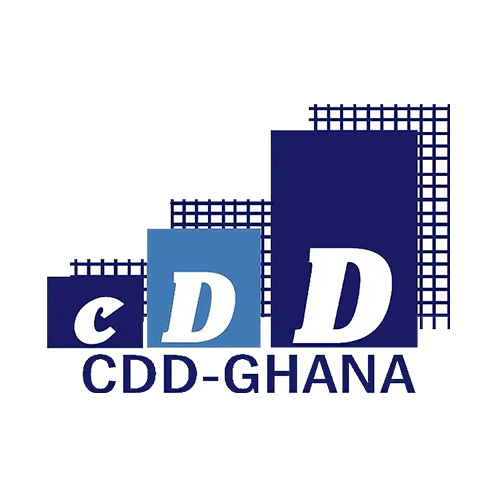
Center for Democratic Development (CDD-Ghana)
The Ghana Center for Democratic Development (CDD-Ghana) is an independent, not-for-profit research and advocacy think tank, working to advance democracy, good governance, and inclusive economic growth. CDD-Ghana works to complement the broader objectives of strengthening democratic governance, the principles of popular participation and the demand for public accountability. The Center harnesses the power of evidence-based research, ideas, partnerships to encourage dialogue, inform and influence public policy.
- Address: No info provided
- Email: info@cddgh.org
- Website: https://cddgh.org/
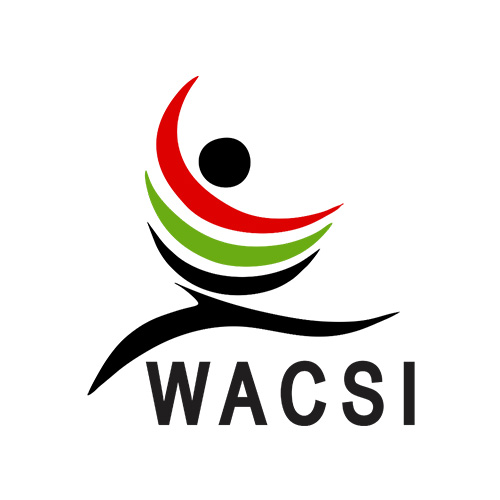
West Africa Civil Society Initiative (WACSI)
The West Africa Civil Society Institute (WACSI) was established by the Open Society Initiative for West Africa (OSIWA) in 2005 to reinforce the capacities of civil society in the sub-region. The Institute became operational in July 2007.
- Address: No info provided
- Email: No info provided
- Website: http://www.wacsi.org/
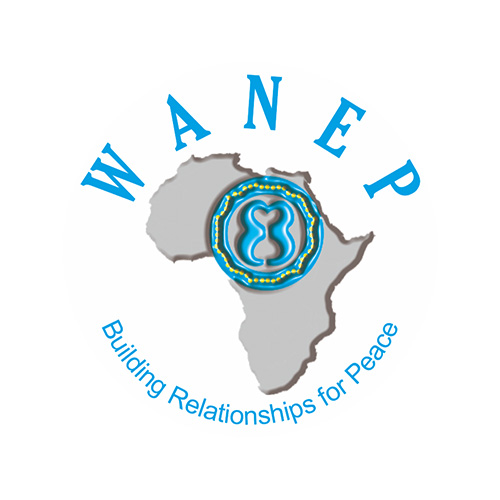
West Africa Network for Peacebuilding (WANEP)
The West Africa Network for Peacebuilding (WANEP) is a leading Regional Peacebuilding organization founded in 1998 in response to civil wars that plagued West Africa in the 1990s. Over the years, WANEP has succeeded in establishing strong national networks in every Member State of ECOWAS with over 500 member organizations across West Africa.
WANEP places special focus on collaborative approaches to conflict prevention, and peacebuilding, working with diverse actors from civil society, governments, intergovernmental bodies, women groups and other partners in a bid to establish a platform for dialogue, experience sharing and learning, thereby complementing efforts at ensuring sustainable peace and development in West Africa and beyond.
In 2002, WANEP entered into a historic partnership with the Economic Community of West African States (ECOWAS) an inter-governmental structure in the implementation of a regional early warning and response system (ECOWARN). A memorandum of understanding between WANEP and ECOWAS was signed in 2004 for five years, and has since been renewed for another 5 years. This partnership constitutes a major strategic achievement for WANEP and West Africa civil society as it offers the much desired opportunity to contribute to Track I response to conflicts and policy debates.
At the continental level, WANEP is a member of the Peace and Security cluster of the African Union’s (AU) Economic, Social and Cultural Council –ECOSOCC representing West Africa. At international level, WANEP has a Special Consultative Status with the United Nations Economic and Social Council (ECOSOC) and is the West Africa Regional Representative of the Global Partnership for the Prevention of Armed Conflict (GPPAC). WANEP is the Chair of GPPAC.
WANEP provides professional courses in conflict prevention and peacebuilding informed by several years of practice experience to governments, businesses, and practitioners throughout the sub-region and beyond. Underlying its work is a commitment to professionalism and a dedication to a world of mutual respect, tolerance and peace.
- Address: No info provided
- Email: No info provided
- Website: https://wanep.org/wanep/
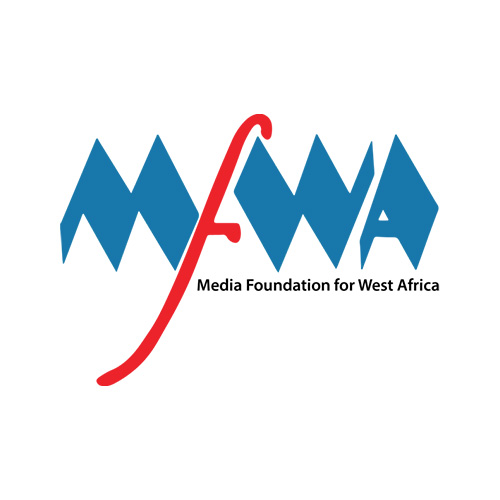
Media Foundation for West Africa
The MFWA is a regional independent non-governmental organisation with a network of national partner organisations in all 16 countries in West Africa. It is the biggest and most influential media development and freedom of expression organisation in the region with UN ECOSOC (Economic and Social Council) Consultative Status and Observer Status with the African Commission of Human and Peoples Rights (ACHPR).
The MFWA also has Equivalency Determination Certification with NGOSource that certifies the organisation as being the equivalent of a public charity in the United States. The MFWA is also the Secretariat of the continental Network of the most prominent Free Expression and Media Development Organisations in Africa, known as the Africa Freedom of Expression Exchange (AFEX). It also works in partnership with other regional and international organisations through different networks such as IFEX, AFEX, the Africa Freedom of Information Centre (AFIC) and the African Platform on Access to Information (APAI).
The organisation also works closely with the regional inter-governmental body, ECOWAS. It also engages frequently with mechanisms of the African Union (AU) and the UN.
- Address: No info provided
- Email: No info provided
- Website: https://www.mfwa.org/
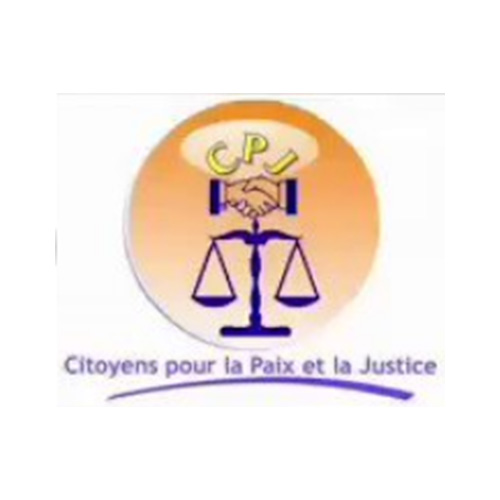
Citoyen Pour la Paix et Justice
- Address: No info provided
- Email: No info provided
- Website:
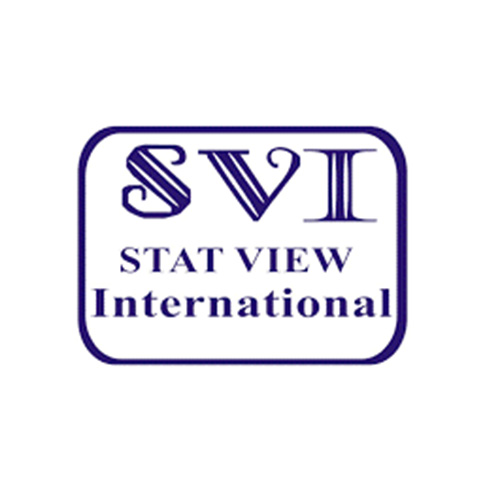
Statview International
Stat View International (SVI) est une Organisation Non Gouvernementale guinéenne qui a été agrée le 26 Novembre 1992 sous le No 92/5188/MIS/DAP. Elle est dotée du Statut Consultatif Spécial des Nations Unies (Statut ECOSOC). Membre du réseau Afro Baromètre, Stat View International a pour domaine de compétences:
- Le Monitoring et l’évaluation des projets et programmes
- Les Etudes quantitatives et qualitatives
- Les Etudes de Marché
- La Recherche
- La Formation
- Le renforcement des capacités des jeunes diplômés à travers les stages de formation
- La Communication pour le changement de comportement
Notre organisation a réalisé avec succès des activités dans les pays suivants : Guinée, Sierra Leone, Liberia et São Tomé et Principe.
- Address: No info provided
- Email: No info provided
- Website: https://www.statviewinternational.com/
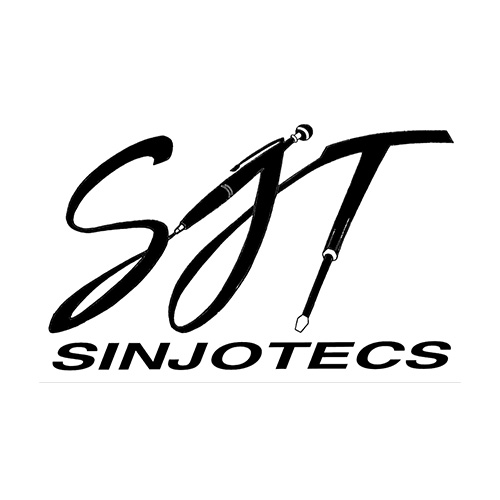
Sindicato de journalistas e Tecnicos de Comunicacao Social (SINJOTECS)
SINJOTECS is a press union in Guinea Bissau. Among other things, the union advocates for press freedom, media professionalism and safety of journalists.
- Address: No info provided
- Email: No info provided
- Website:
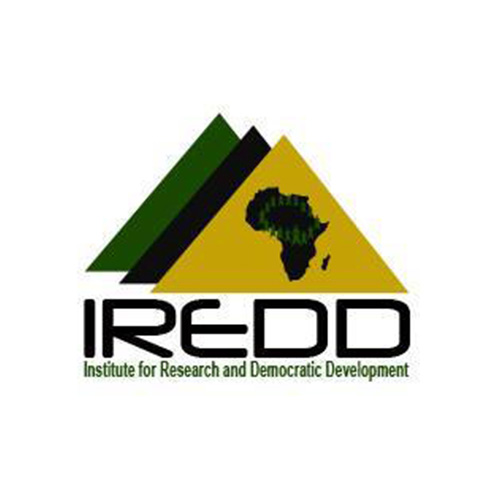
Institute for Research And Democratic Development (IREDD)
- Address: No info provided
- Email: No info provided
- Website: https://www.facebook.com/ireddlr/
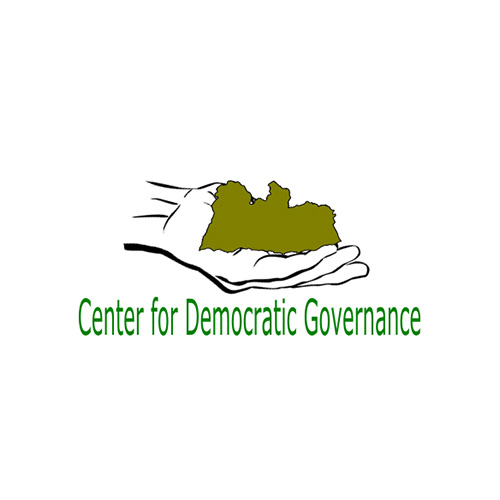
Center for Democratic Governance (CDG)
The Center for Democratic Governance (CDG) is a pro-democracy, advocacy, research and organizational capacity development think tank institution that is legally registered with the Government of Liberia since 2015. The vision of the CDG is Liberia where policies and laws are responsive to the needs of citizens. In pursuit of this vision, the CDG has the following mission: to transform democratic and governance policies from a top-down approach to one that is reflective of citizens’ voices, views and perspectives.
The CDG does research work on a wide range of governance issues including land reform, accountability, electoral violence, electoral reforms, political transition, transitional justice and inclusive service delivery. The CDG uses the outcomes of its different research to develop policy briefs for advocacy targeting high level policy makers. The executive director is Atty. Oscar Bloh he has over 15 years of professional experience.
- Address: No info provided
- Email: No info provided
- Website: https://www.cdglib.org/
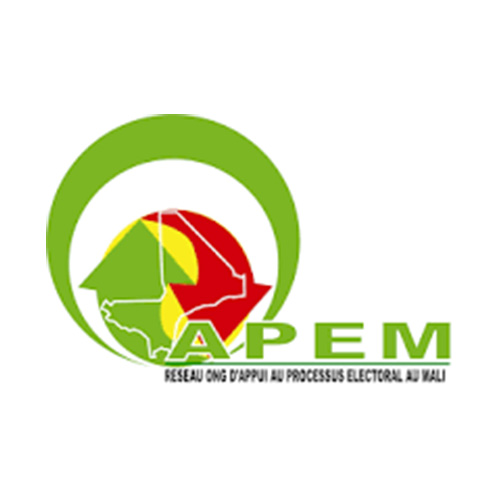
Reseau ONG d’Appui au Processus Electoral au Mali – Reseau APEM
- Address: No info provided
- Email: No info provided
- Website:
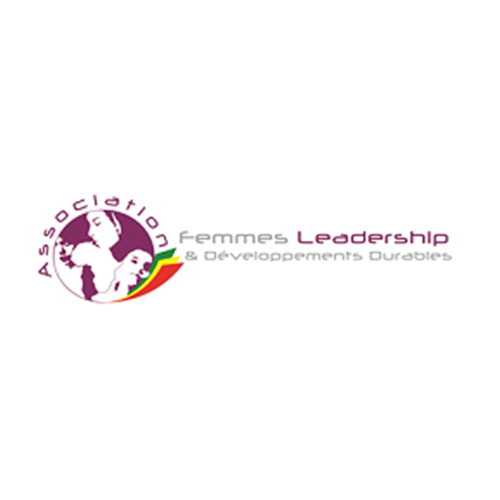
Association Femmes Leadership et Development Durable(AFLED)
L’Association Femmes Leadership et Développement Durable (AFLED) a été créée en 2010 pour développer le leadership des jeunes femmes et filles, en 2016, AFLED est devenue une Organisation Non Gouvernemental (ONG). Les membres d’AFLED sont convaincus que pour développer le Mali, les hommes et les femmes doivent conjuguer leurs efforts ; la particularité d’AFLED tient à la jeunesse de ses membres et aussi du fait que ses activités visent essentiellement les jeunes de moins de 35 ans. Cette tranche d’âge constitue plus de la moitié de la population, cependant elle est faiblement représentée dans la vie publique. AFLED s’attèle à ce que la promotion des droits des femmes, et les activités d’épanouissement de la femme soient assimilées depuis le jeune âge. AFLED est engagé dans la bonne gouvernance et le renforcement de l’état de droit particulièrement dans le contexte de crise que traverse le pays.
AFLED est très impliquée dans développement durable, la lutte pour la justice climatique et le renforcement de la résilience des femmes. AFLED a un bureau à Bamako, Ségou et Mopti. Par ailleurs, l’Association Femmes Leadership et Développement Durable (AFLED) a obtenu le Statut consultatif spécial auprès de ONU ECOSOC. Grâce à ce statut, AFLED travaille de manière étroite dans différents domaines avec les Nations Unies. L’obtention de ce statut consultatif spécial représente le couronnement de notre engagement et notre travail en faveur des droits des femmes et des filles. Reconnaissance et gratitude aux Nations Unies et à tous nos partenaires pour la confiance. Les domaines d’intervention Gouvernance (leadership)Dans le cadre du volet leadership, AFLED ambitionne de faire participer plus de jeunes femmes et adolescentes à la vie publique. AFLED veille au respect du cadre légal en faveur des femmes mais de façon générale la protection des droits humains et la préservation des acquis démocratiques.
Éducation
La scolarisation des filles et l’intégration du genre dans les infrastructures éducatives est une priorité dans le plaidoyer que mène AFLED. AFLED travaille à fournir des moyens de subsistances aux familles afin de réduire la charge des travaux de soins non rémunérés sur les femmes et réduire la pauvreté.
Autonomisation économique des femmes
Les femmes selon les données recueillies sont les plus pauvres de la société, elles évoluent principalement dans l’informel avec un faible pouvoir d’achat. AFLED contribue à faire avancer l’ODD1 relatif à la lutte contre la pauvreté à travers le renforcement des capacités et le financement de micro-projets.
- Address: No info provided
- Email: No info provided
- Website: https://www.afled.org/
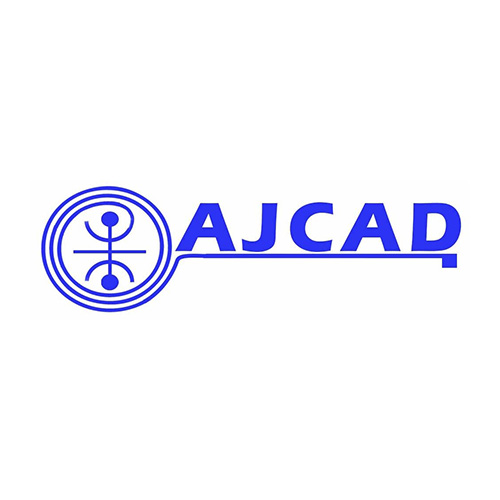
Youth Association for Active Citizenship and Democracy(AJCAD)
L’Association des Jeunes pour la Citoyenneté Active et la Démocratie est le fruit d’un regroupement de jeunes convaincus de leur rôle dans le développement et dans l’instauration d’un Etat de Droit au Mali. Les membres fondateurs sont des activistes impliqués dans la promotion des jeunes dans différents domaines : santé sexuelle, gouvernance, plaidoyer etdroits.
C’est suite à de multitude d’actions menées ensemble dans le cadre du programme My Rights My Voice de Oxfam Novib qu’une prise de conscience sur les responsabilités des différents sociétaires s’est avérée nécessaire. Ils ont fait des séances d’interpellation des candidats aux élections présidentielles et législatives, mobilisation de la population électeurs à aller s’inscrire et à voter, soumission de manifeste aux candidats et l’analyse des projets de société des candidats.
Vu les effets de ces activités sur la communauté, nous nous sommes dévoués à mettre en place un espace régulier, durable et efficace pour la continuité de la citoyenneté et des stratégies de plaidoyer des jeunes.
- Address: No info provided
- Email: No info provided
- Website: https://ajcadmali.org/
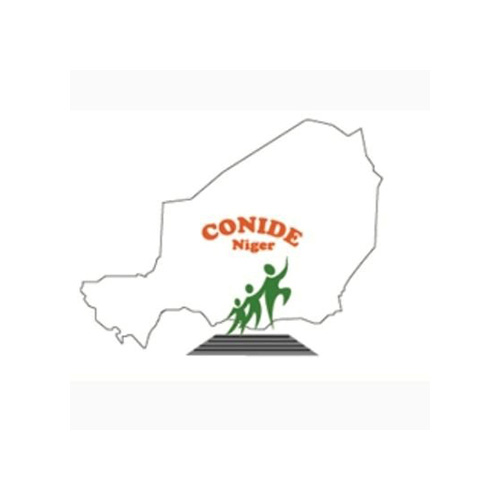
CONIDE – Coalition Des Organisations Nigériennes des Droits De l’Enfant
La CONIDE Niger est une structure faitière qui regroupe 95 ONG et Associations qui ont pour objectif la promotion des droits humains particulièrement centrée sur les enfants, jeunes et femmes, mais également active sur la bonne gouvernance avec l’accompagnement des jeunes dans la citoyenneté responsable en vue d’une veille citoyenne.
La CONIDE assiste également les communautés dans le recours au contentieux en cas de violations de leurs droits, tout comme l’accompagnement des collectivités locales dans la gouvernance et la budgétisation sensible aux groupes vulnérables et le plaidoyer.
Vous pouvez consulter également notre page Facebook : Coalition des Organisations Nigériennes des Droits de l’Enfant
- Address: No info provided
- Email: No info provided
- Website: https://www.facebook.com/Coalition-des-Organisations-Nig%C3%A9riennes-des-Droits-de-lEnfant-311782426103219/
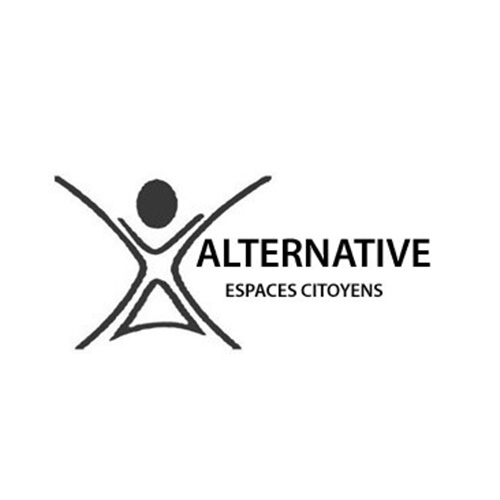
Alternative Espace Citoyen(AEC)
Created in September 1994, on the initiative of a group of progressive intellectuals, Alternatives Espaces Citoyens is an apolitical non-profit association, whose mission is ” to work for the advent of a society based on equality of human and gender rights, concerned with the preservation of the environment and the promotion of youth, and valuing solidarity between peoples .
The association works in the field of citizenship education, notably through its radio station based in Niamey. The organization also uses other means such as video documentaries, street theater, public lectures, to promote democratic values among the population.
- Address: No info provided
- Email: No info provided
- Website: https://www.alternativeniger.net/
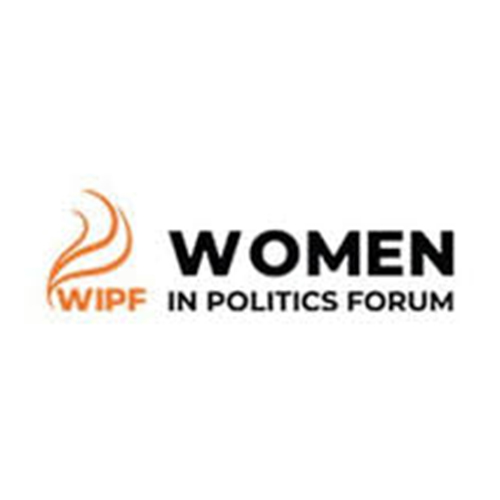
Women In Politics Forum, Africa (WIPF)
Women in Politics Forum is an organization with the goal of ensuring an increase in the level of women’s participation in political and leadership roles. Women in politics forum is a registered trademarked organization for women’s advocacy in leadership advancement in Nigeria which was registered as a non-governmental organization at the Nigerian corporate Affairs Commission. It is a non-partisan organization with a United Nations Economic and social council status (ECOSOC) established to provide support and resources to women in politics and advocate for an increase in the number of women in political offices and government.
- Address: Amb. Albert I. Osakwe House, 1473 Inner Block St, Central Business Dis 900103, Abuja
- Email: womeninpoliticsforum@gmail.com
- Website: https://wipfng.org
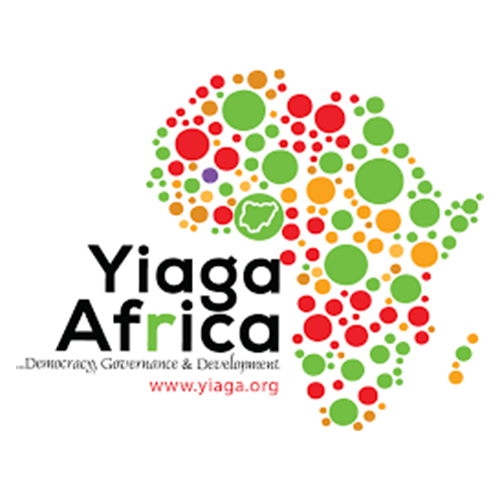
Yiaga Africa
Yiaga Africa was launched as a student organization in 2007 at the University of Jos, Nigeria and has since established itself as a leading civil society organization in Africa. Since its inception, it has carved a niche for itself as one of Africa’s frontline non-profit organizations promoting participatory democracy, human rights and civic participation.
With its operational base in Abuja, Nigeria, Yiaga Africa focuses on in-depth research, providing critical analysis on key democratic and governance issues, crafting practical solutions, training and empowering citizens to lead change in their community. Yiaga Africa implements several innovative programs aimed at stimulating active citizenship, protecting human rights and deepening democratic governance. We invest in building networks and social movements to drive social change and transformation. Yiaga Africa has leadership structures and members in all 36 states and 774 Local Government Areas (LGA) of Nigeria.
- Address: Plot 54 Casdastral Zone, Idu, karmo 900108, Abuja, Federal Capital Territory
- Email: info@yiaga.org
- Website: https://yiaga.org/
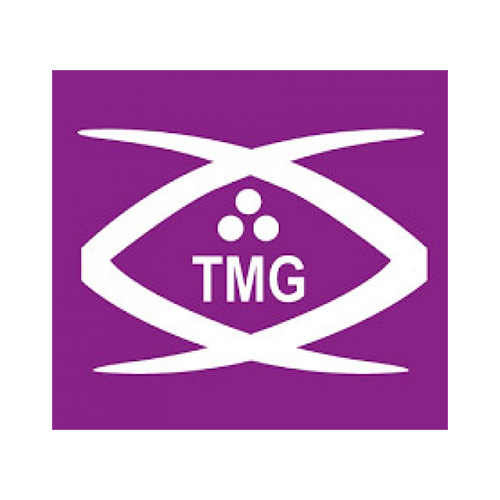
Transition Monitoring Group(TMG)
The Transition Monitoring Group (TMG) is the foremost independent civil society election observation organization in Nigeria. Established in 1998 as a non-profit organization, the TMG now has 400 member organizations committed to the entrenchment of democracy in Nigeria.
The organization seeks to secure the highest standards in the administration of elections in Nigeria by ensuring that the election management body and the electorates carry out their responsibilities during elections in accordance with the Law and internationally recognized standards for free and fair elections.
- Address: No info provided
- Email: No info provided
- Website: https://tmgnigeria.wordpress.com/about/
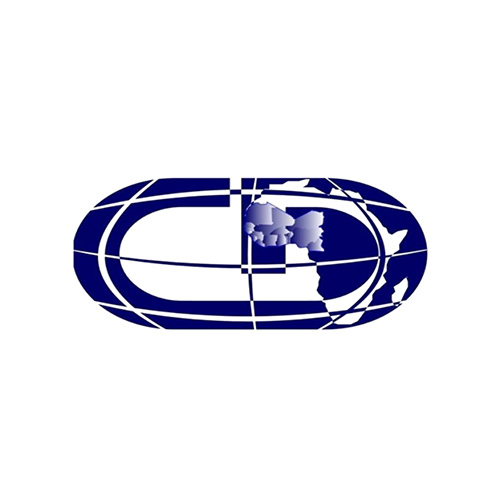
CDD-West Africa
The Centre for Democracy and Development (CDD) was established in the United Kingdom in 1997 and subsequently registered in Lagos – Nigeria in 1999 as an independent, not-for-profit, research, training, advocacy and capacity building organization The Centre was established to mobilize global opinion and resources for democratic development and provide an independent space to reflect critically on the challenges posed to the democratization and development processes in West Africa, and also to provide alternatives and best practices to the sustenance of democracy and development in the region.
CDD envisions a West Africa that is democratically governed, economically integrated – promoting human security and people-centered development. The mission of the center is to be the prime catalyst and facilitator for strategic analysis and capacity building for sustainable democracy and development in the West African sub-region.
The Centre for Democracy and Development (CDD) was established in the United Kingdom in 1997 and subsequently registered in Lagos – Nigeria in 1999 as an independent, not-for-profit, research, training, advocacy and capacity building organization. The Centre was established to mobilize global opinion and resources for democratic development and provide an independent space to reflect critically on the challenges posed to the democratization and development processes in West Africa, and also to provide alternatives and best practices to the sustenance of democracy and development in the region. CDD envisions a West Africa that is democratically governed, economically integrated – promoting human security and people-centered development.
The mission of the center is to be the prime catalyst and facilitator for strategic analysis and capacity building for sustainable democracy and development in the West African sub-region.
- Address: No info provided
- Email: No info provided
- Website: https://cddwestafrica.org/
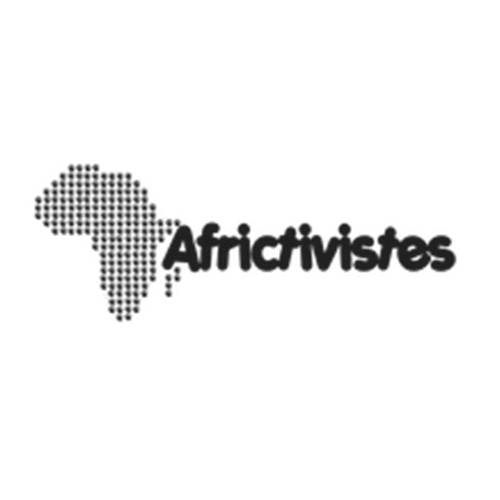
Africtivistes
The African League of Bloggers and Cyber-activists for Democracy commonly known as AFRICTIVISTES is a pan-African organization based in Dakar where its headquarters are located. Africtivistes is the union of bloggers and web-activists on the continent to promote and defend democratic values, human rights and good governance through digital.
AFRICTIVISTES was created in November 2015 with a view to networking all actors of change in Africa to provide concrete and appropriate solutions to the major problems that are hampering democratic development and the unity of the continent.
AFRICTIVISTES as a dynamic organization extended to all African countries focuses on the “Consolidation of democracy” not only at the level of each country but also and above all at the continental level. We mean by consolidation of democracy, any action tending towards real democracy, participatory democracy, cyberdemocracy, E-governance and the effective anchoring of democratic culture in our respective countries.
AFRICTIVITES is a sentinel of democracy in all African countries. As such, the league is determined to intervene directly or to make pleas to involve actors in the various processes of political and social change. It conducts and pilots development and citizen involvement projects in democratic systems. It obviously develops strategies aimed at monitoring and having monitored political leaders in their actions and in the fulfillment of their promises to encourage transparency and good governance. It is a showcase of augmented citizenship in Africa.
- Address: No info provided
- Email: No info provided
- Website: https://www.africtivistes.org
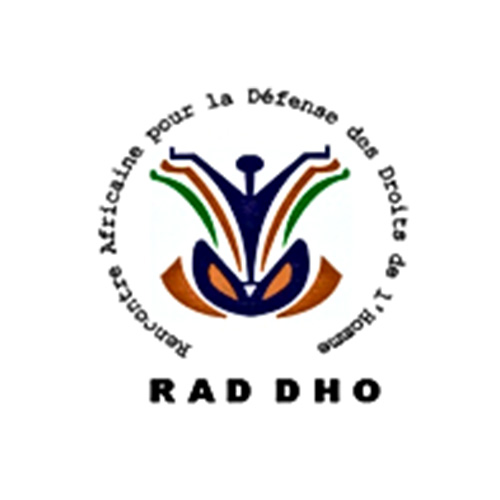
Rencontre Africaine Pour La Défense des Droits De l’Homme(RADDHO)
La Rencontre Africaine pour la Défense des Droits de l’Homme (RADDHO) est une ONG nationale basée à Dakar, qui travaille pour la protection et la promotion des droits humains au niveau national, régional et international.
L’organisation intervient aussi pour la mise en œuvre de la Déclaration Universelle des Droits de l’Homme et pour le respect des traités et conventions internationales relatives aux droits humains.
La RADDHO veille au respect de l’indépendance de la justice, d’un procès équitable pour tous. Elle mène des études, investigations et des analyses qui permettent l’alerte d’urgence et la prévention des conflits . Voir plus
- Address: No info provided
- Email: No info provided
- Website: https://www.raddho-africa.org/
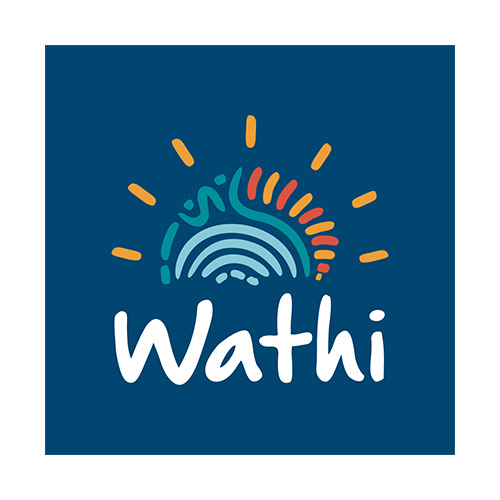
West Africa Citizen Think-Tank
WATHI’s vision is that of peaceful, dignified, productive and united societies in West Africa and of a West Africa open to all regions of the African continent and to the world. It is also the vision of a universe that comes in a state of mind, a civic movement and a laboratory of ideas.
WATHI’s West Africa includes the 15 member countries of the Economic Community of West African States (ECOWAS) but also the countries that link up with North and Central Africa, in particular the Mauritania, Cameroon and Chad.
- Address: No info provided
- Email: No info provided
- Website: https://www.wathi.org/
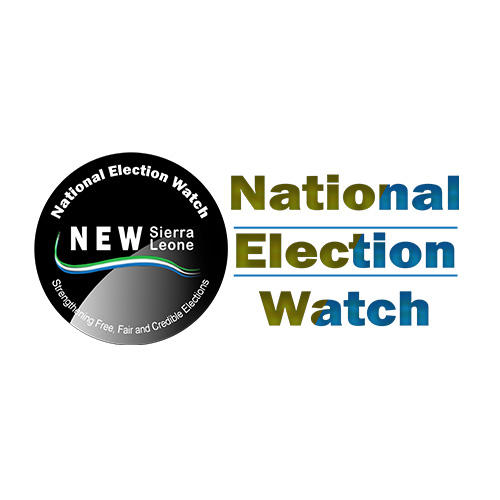
National Election Watch (NEW) – Sierra Leone
Our Mission is to strengthen network of local and national civil society elections observers, civic and electoral education, Monitor national democratic processes to ensure transparent and acceptable outcomes, Work with government and democratic institutions to stimulate an active citizenry whilst strengthen democratic governance
Our goal is to ensure transparent, inclusive and accountable electoral processes, strengthening democratic governance and the rule of law.
- Address: No info provided
- Email: No info provided
- Website: https://nationalelectionwatchsl.org/
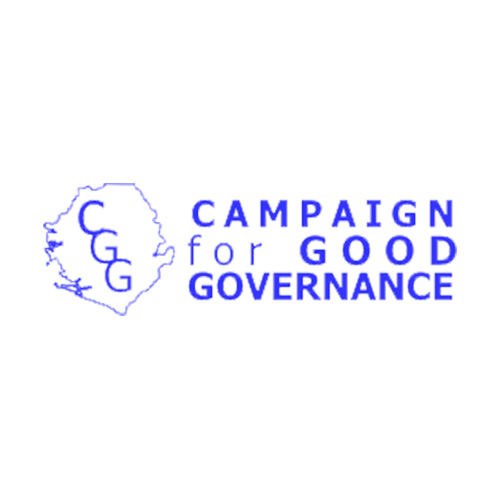
Campaign for Good Governance
CGG exists to increase citizen participation in governance through advocacy, capacity building and civic education in order to build a more informed civil populace and a democratic State.
CGG works with key partners including international NGOs and government departments such as the police to effectively deliver programs; and belongs to several associations and research communities. This strong network and a long history of successful campaigns have given CGG an excellent reputation as one of Sierra Leone CGG’S Services to the Public
CGG specializes in issues of Decentralization and Local Governance, Democratic Participation, Corruption, Human Rights, Gender, Peace-building, Poverty Reduction Strategy, and Budgeting. CGG also has vast experience in conducting scientific research, opinion polls on developmental issues, and analysis of policies.
The organization offers consultancy services to other organizations, international development partners, the government and other relevant stakeholders in and out of the country. CGG can facilitate training sessions, conduct research, opinion poll and surveys for and with partners on developmental issues.
- Address: No info provided
- Email: No info provided
- Website: https://slcgg.org
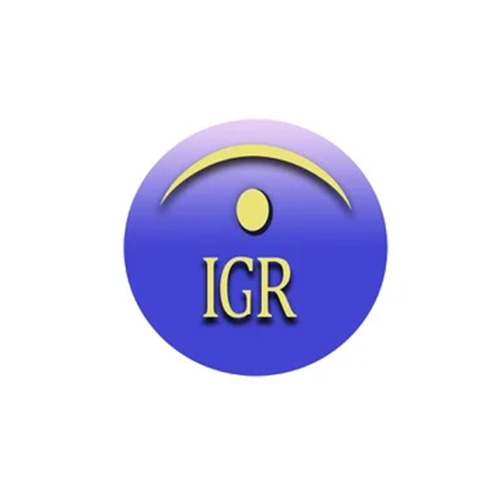
Institute for Governance Reform (IGR)
Institute for Governance Reform (IGR) is Afrobarometer’s national partner for Sierra Leone
Established in February 2013, the Institute for Governance Reform (IGR) is a leading independent multi-disciplinary public policy research and institutional development think tank in Sierra Leone. A “good governance” ethos underpins our work, and we have assisted a range of client organizations and communities in their efforts to improve their public services performance. Through operational research and targeted support to agencies, we bridge the gap between knowledge and policy.
IGR’s long-term vision for Sierra Leone is to have capable institutions implementing policies that promote social cohesion, democratic governance, economic competitiveness, and inclusive communities. IGR’s team’s vast knowledge of Sierra Leone and West Africa and our experience with government ministries, donors, and civil society ensure our clients’ access to quality data, timely analysis, and excellent results.
IGR works as a partner with multiple organizations and is committed to providing excellent technical assistance for capacity-building and sustainable development in public institutions as well as private-sector and non-state organizations with public responsibilities. IGR reports are geared toward helping clients spearhead change in their organizations. We ensure originality and high standards in our research to remain relevant and competitive.
IGR’s strategic approach is to add value to intellectual synthesis by breaking down complex project outcomes into forms of knowledge that are readily understood by diverse stakeholders. In addition to conducting primary research and report-writing, we provide post-research support, project evaluation, training, and mentoring.
IGR has extensive survey experience, having conducted a wide array of studies using nationally representative samples. To this end, the organisation have a readily available team of research supervisors and data collectors from all ethnic groups and regions of Sierra Leone that we have cultivated, developed, and trained in the past five years. Through rigorous quality-assurance standards, IGR ensures that research results are of the highest quality, maintaining only those researchers who deliver consistently strong results and conducting refresher training for our data collectors at the start of every research exercise.
- Address: No info provided
- Email: No info provided
- Website: http://igrsl.org/
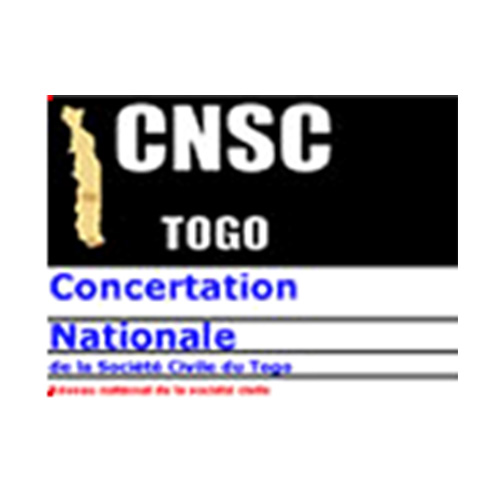
National Civil Society Consultation of Togo (CNSC Togo)
The National Concertation of the Civil Society of Togo (CNSC Togo) is a network of actors of civil society (natural or legal persons) and social movements of Togo. Officially launched on June 15, 2002 in Tsévié (Togo), the CNSC is a forum for dialogue between citizens’ organizations from all over the country, a space in which individual actors and organizations analyze issues that bring them solutions and generate solutions. common positions. It is an essential interlocutor on the twin track of reconciliation and cooperation for democracy and development. CNSC Togo has regional coordination in each of the five regions of Togo, a board of directors, a National Office and an Executive Management in Lomé.
The goal of CNSC Togo is to stimulate exchanges between national civil society organizations and to contribute to the advent of a rule of law and democracy in Togo. Its objectives are to involve civil society organizations in the search for a concerted solution for the construction of democracy in Togo; to create a synergy between the partner movements for the reinforcement of the structures of the civil society, the networking and the dynamisation of the social movements at the base; develop and implement projects / programs in the different areas of intervention.
- Address: No info provided
- Email: No info provided
- Website: http://www.cnsctogo.org/
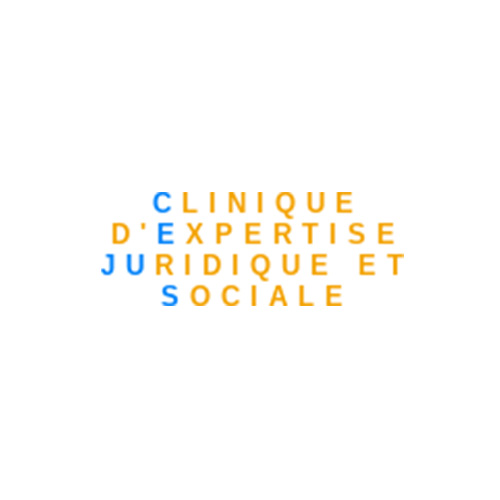
Clinique d’Expertise Juridique Et Social (CEJUS)
La Clinique d’Expertise Juridique et Sociale (CEJUS) est une organisation apolitique et à but non lucratif de défense des droits humains, qui s’investit depuis 2015 dans la promotion de la gouvernance démocratique et électorale, la promotion de la paix, de la cohésion sociale et de la prévention de l’extrémisme violent.
Elle promeut par ailleurs l’équité genre et la protection des couches vulnérables à travers une assistance juridique et judiciaire gratuite des populations. Membre du Réseau des Cliniques Juridiques Francophones (RCJF), la CEJUS développe sur l’Université de Lomé un centre de compétences en matière de « recherche clinique » et de « l’enseignement clinique du droit ». Engagée en faveur de l’accès au droit et à la justice pour tous, l’organisation est basée à Lomé, mais intervient sur toute l’étendue du territoire togolais, avec une présence plus accrue au nord du Togo ces dernières années.
Elle travaille actuellement sur les axes prioritaires suivants : Gouvernance démocratique; Promotion de la paix, de la cohésion sociale et prévention de l’extrémisme violent; Assistance juridique et judiciaire gratuite; Promotion et protection des droits de l’homme; Lutte contre les VBG; Promotion des droits fonciers de la femme; Protection de l’enfance et justice juvénile.
- Address: No info provided
- Email: No info provided
- Website: http://www.cejus.org/
